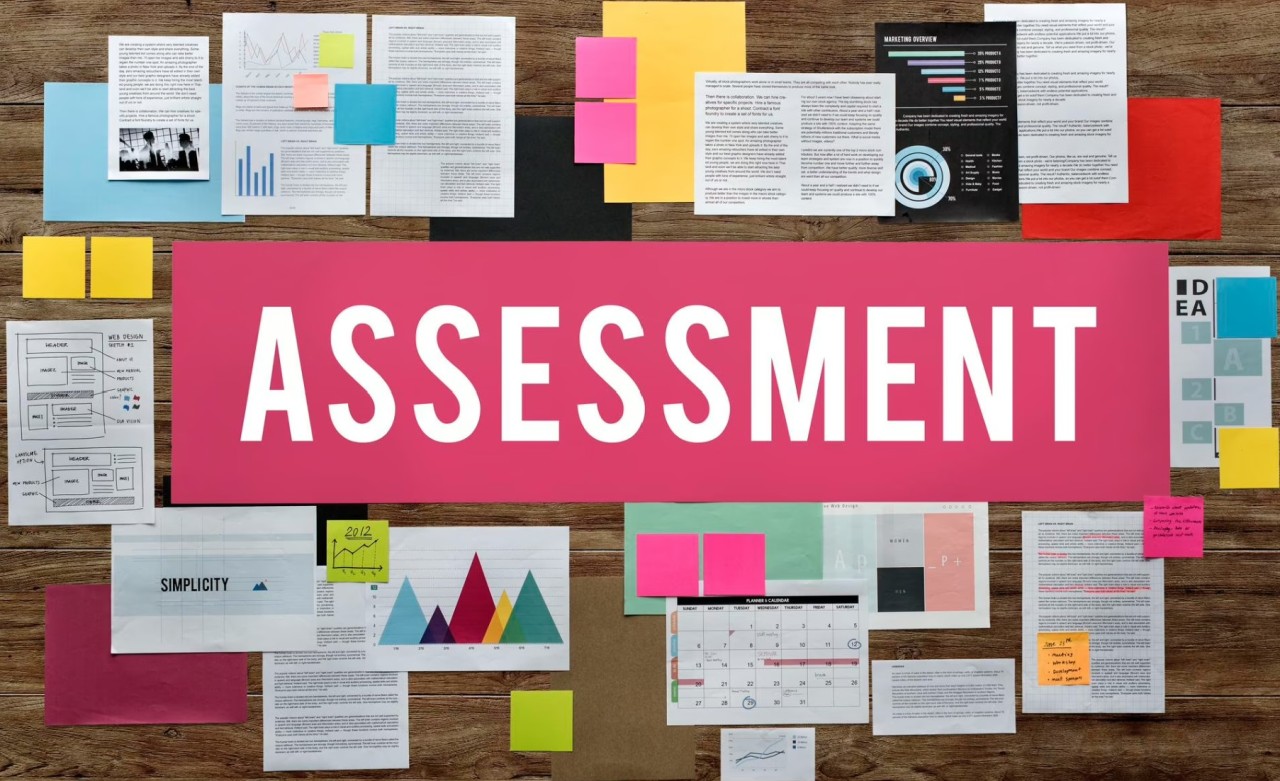Insight Blog
Agility’s perspectives on transforming the employee's experience throughout remote transformation using connected enterprise tools.
14 minutes reading time
(2768 words)
Does Your Organization Need An Employee Retention Consultant?
The primary goal of an Employee Retention Consultant is to identify factors that contribute to high employee turnover and develop effective solutions to address them.
Employee retention strategies encompass more than just employee engagement and culture; they also involve organizational structure, leadership, and communication. These additional elements play crucial roles in creating an environment that fosters employee loyalty and reduces turnover.
An Employee Retention Consultant is a professional who specializes in helping organizations improve their employee retention rates. They provide expertise and guidance to companies to develop strategies and implement initiatives that enhance employee satisfaction, engagement, and loyalty, ultimately reducing turnover.
The primary goal of an Employee Retention Consultant is to identify factors that contribute to high employee turnover and develop effective solutions to address them.
They typically conduct comprehensive assessments of an organization's current retention practices, policies, and culture to identify areas of improvement. This can involve analyzing employee surveys, conducting interviews, and reviewing data related to turnover rates, performance metrics, and employee feedback.
Based on their findings, an Employee Retention Consultant may recommend a range of strategies and interventions.
The role of an Employee Retention Consultant is to collaborate with organizational leaders, HR professionals, and managers to implement strategies effectively.
Employee Retention Definition
Employee retention has become a pressing issue in today's workplaces, with organizations grappling to understand why their valuable employees are leaving at an alarming rate.
This problem stems from a multitude of factors, ranging from changing workplace dynamics to evolving employee expectations.
One significant reason for employee turnover is the lack of opportunities for career growth and development. Employees are eager to enhance their skills, take on new challenges, and advance within their organizations. When these avenues for growth are limited or non-existent, employees feel stagnant and seek better prospects elsewhere.
Another critical factor is the lack of work-life balance. In today's fast-paced world, employees are seeking a harmonious integration of their personal and professional lives.
Organizations that fail to provide flexible work arrangements, adequate time off, and supportive policies often find their employees burnt out and dissatisfied.
As a result, employees opt for opportunities that prioritize their well-being and allow for a healthier work-life balance.
Additionally, ineffective management and leadership play a pivotal role in employee retention. Employees often leave due to poor relationships with their supervisors, a lack of trust and respect, or a feeling of being undervalued. Strong leadership that fosters open communication, provides regular feedback, and recognizes employee contributions is crucial for retaining a talented workforce.
Furthermore, the rising trend of remote work and the COVID-19 pandemic have further impacted employee retention. The shift to remote work has given employees greater flexibility and the opportunity to work for organizations beyond their geographic location.
As a result, companies must now compete on a global scale to attract and retain top talent.
If a company's culture does not align with an employee's values and beliefs, they are more likely to seek alternative employment. A positive and inclusive culture that promotes diversity, equity, and inclusion, along with a strong sense of purpose, is vital for employee engagement and loyalty.
Some effective practices for employee retention include:
- Ensuring the right candidate is selected for each role, considering their skills, qualifications, and cultural fit.
- Equipping employees with the necessary knowledge and support to succeed in their roles from the beginning.
- Providing appropriate remuneration that aligns with the position and market standards to attract and retain top talent.
- Offering essential benefits such as flexible or hybrid work arrangements, parental leave, and programs promoting health and well-being, such as stress management initiatives, fitness membership reimbursements, and retirement planning services.
- Creating a culture that encourages transparent dialogue, allowing employees to share new ideas, express desires for professional growth, and address any arising issues.
- Continuously evaluating and providing constructive feedback on employee performance to acknowledge progress and offer guidance for improvement, fostering a sense of direction and development.
While the aforementioned practices serve as examples, there are additional components that can contribute to improved retention. Conducting employee engagement surveys can provide unique insights specific to your organization, allowing you to identify the meaning of employee retention and implement tailored practices accordingly.
Employee Retention Consultants – Do You Need One?
Hiring an Employee Retention Consultant is highly beneficial for organizations, because they offer alot of expertise and specialized knowledge in improving employee retention rates.
Implementing effective strategies to retain talented employees at your company brings numerous benefits. Retention management, when executed properly, can have a positive impact on your organization in various ways.
Retaining talented employees offers several advantages for your company. A consultant can help maintain valuable institutional knowledge within your organization. Experienced employees possess valuable insights, skills, and expertise that contribute to the overall success of the business. By keeping these individuals on board, you ensure continuity and avoid the loss of critical knowledge.
Secondly, employee retention contributes to a stable and productive work environment.
When talented employees remain with your company, they become more familiar with the organization's processes, culture, and expectations.
This familiarity leads to increased efficiency, as employees can perform their roles effectively without the need for constant onboarding and training of new staff members.
Furthermore, high retention rates positively impact team dynamics and collaboration. When employees stay with the company long-term, they build strong relationships with their colleagues, fostering a sense of trust and cohesion. This synergy enhances teamwork, communication, and knowledge sharing, resulting in improved productivity and overall performance.
Retaining talented employees also positively impacts the company's bottom line. Employee turnover is costly, as it requires resources for recruitment, onboarding, training, and lost productivity during the transition period.
By reducing turnover and retaining skilled employees, you save costs associated with recruitment and ensure a more stable and efficient workforce.
3 Ways in how a consultant can help:
- Assessing Your Retention Efforts Employee retention consulting starts with benchmarking your organization's employee retention efforts. Consultants analyze your turnover data, policies, and practices to evaluate how well you are currently retaining your employees. Through this assessment, they identify areas of strength and weakness, allowing you to understand your organization's performance in relation to industry benchmarks and best practices.
- Talent Acquisition and Retention Strategy Development Consultants work closely with your organization to develop a comprehensive talent acquisition and retention management strategy. They leverage their expertise to align your recruitment and retention practices with your business goals. This strategy includes proactive measures to attract top talent, as well as initiatives to engage, develop, and retain existing employees. Consultants help you design programs and policies that address the unique needs and preferences of your workforce.
- Objective and Constructive Insights into Current Strategies Employee retention consultants offer an unbiased perspective on your current retention strategies. They objectively assess the effectiveness of your programs and policies, highlighting strengths and areas for improvement. By providing constructive feedback and insights, consultants guide you in making informed decisions to optimize your retention efforts. Their expertise allows them to identify potential gaps or barriers that may be hindering employee engagement and loyalty, enabling you to take proactive steps to address them.
Moreover, employee retention contributes to your organization's reputation as an employer.
When talented individuals are satisfied and engaged, they become brand ambassadors who speak positively about their experience working for your company. This positive word-of-mouth can attract more top-tier candidates, enhancing your ability to hire and retain high-performing employees in the future.
Employee Retention Consulting – How Does It Work?
Employee retention consulting is a specialized service offered by professionals or consulting firms to help organizations effectively retain their employees. These consultants work closely with businesses to identify the underlying causes of employee turnover and develop strategies to enhance retention rates.
Here's how employee retention consulting typically works:
- The consultant begins by conducting a comprehensive assessment of the organization's current employee retention practices. This involves analyzing turnover data, conducting surveys or interviews with employees, and evaluating existing retention strategies and policies.
- Based on the assessment, the consultant identifies the key factors contributing to employee turnover. These may include inadequate career development opportunities, poor leadership, lack of work-life balance, unsupportive organizational culture, or other issues specific to the organization.
- Once the challenges are identified, the consultant collaborates with the organization's management team to develop tailored strategies to address the issues and improve employee retention. This may involve creating new programs or initiatives, revising existing policies, and implementing best practices.
- The consultant assists in implementing the recommended strategies by working closely with the organization's HR department and leadership team. They provide guidance on communication plans, training programs, and policy changes necessary to support the retention efforts.
- The consultant helps establish metrics and tracking mechanisms to monitor the effectiveness of the retention strategies. Regular evaluations are conducted to assess the impact of the implemented initiatives and make necessary adjustments as needed.
- Employee retention consultants may also provide training and development programs for managers and leaders within the organization. This helps improve their skills in areas such as communication, performance management, and employee engagement, which are crucial for retaining talent.
- Employee retention consulting goes beyond implementing initial strategies—it involves continuous support to sustain positive changes and maintain high retention rates. Consultants often provide follow-up assessments, regular check-ins, and periodic reviews to monitor progress, address emerging challenges, and refine recommendations.For example, organizations investing in employee development, such as supporting certifications like CompTIA Security+ SY0-701 Practice Test Dumps, can enhance retention by showing commitment to professional growth. Consultants may recommend tracking participation in training programs and celebrating milestones to reinforce employee engagement.This comprehensive approach ensures that retention strategies remain effective and aligned with organizational goals, fostering a motivated and loyal workforce while addressing evolving needs.
By engaging with an employee retention consultant, organizations can benefit from their expertise, experience, and objective perspective to identify and overcome retention challenges.
This collaborative approach helps create a supportive work environment that fosters employee satisfaction, engagement, and loyalty, ultimately leading to improved retention rates and long-term success for the organization.
Performing An Employee Retention Assessment
Performing an employee retention assessment is a crucial step for organizations looking to understand and improve their ability to retain valuable talent. In today's competitive job market, where attracting and retaining skilled employees is paramount, conducting a thorough assessment provides valuable insights into the factors influencing employee turnover and enables the development of targeted strategies to enhance retention rates.
An employee retention assessment involves a comprehensive evaluation of various aspects within an organization that impact employee engagement, satisfaction, and loyalty. It goes beyond simply analyzing turnover data and delves into the underlying causes of attrition, identifying both systemic and individual factors contributing to employees leaving.
One key element of an employee retention assessment is the analysis of organizational culture. The culture of an organization significantly influences employee morale and commitment. By assessing the prevailing culture, including values, norms, communication patterns, and leadership styles, organizations can identify any cultural issues that may be negatively impacting employee retention. This assessment helps uncover potential misalignments between the stated values and the actual experiences of employees, which can contribute to turnover.
Additionally, an assessment should evaluate the effectiveness of leadership and management practices. Strong leadership is crucial for employee engagement and retention. Assessing the quality of leadership within an organization helps identify any shortcomings or areas for improvement. This includes examining leadership styles, communication effectiveness, recognition and rewards programs, and opportunities for professional development. Addressing leadership deficiencies can have a profound impact on employee satisfaction and commitment.
Furthermore, conducting an assessment involves analyzing employee perceptions of career development opportunities. Career growth is a significant driver of employee engagement and retention. Assessing the availability of advancement prospects, training programs, and mentorship initiatives helps organizations understand how effectively they are meeting the career aspirations and developmental needs of their employees.
Overall, an employee retention assessment provides organizations with an in-depth understanding of the factors influencing employee turnover and dissatisfaction. By examining organizational culture, leadership practices, and career development opportunities, organizations can pinpoint areas for improvement and develop targeted strategies to enhance employee retention. Investing in such assessments demonstrates a commitment to creating a supportive and engaging work environment, leading to increased employee satisfaction, productivity, and long-term organizational success.
Developing An Attraction and Retention Strategy
Encouraging Internal Promotions: Organizations can foster employee retention by promoting from within whenever possible. This approach recognizes and rewards employees' skills and dedication, providing them with opportunities for growth and advancement within the company.
- Offering comprehensive training programs demonstrates a commitment to employee development. By investing in their skills and knowledge, organizations empower employees to take on new challenges and advance in their careers, which boosts job satisfaction and loyalty.
- Flexibility in work arrangements, such as remote work options or flexible schedules, can significantly impact employee retention. Accommodating individual needs for work-life balance creates a positive environment that enhances job satisfaction and reduces turnover.
- Recognizing and rewarding employee achievements and contributions is crucial for fostering a positive work culture. Establishing formal recognition programs or awards creates a sense of appreciation and motivates employees to stay committed to the organization.
- A well-designed onboarding process sets the tone for an employee's experience within the organization. By providing thorough orientation, clear expectations, and support during the initial stages, organizations can ensure new employees feel welcomed and engaged, reducing early turnover.
- Regularly monitoring turnover risks allows organizations to proactively identify and address issues that may lead to employee dissatisfaction or departure. By tracking indicators such as low employee morale or high turnover in specific teams, organizations can implement targeted interventions to mitigate potential risks.
- A mentorship program facilitates knowledge sharing, skill development, and career guidance. Pairing experienced employees with mentees cultivates a supportive learning environment and enhances employee retention by providing valuable guidance and support.
- Creating an inclusive and diverse workplace is essential for employee retention. Organizations that foster an environment where employees feel valued, respected, and have equal opportunities for growth and advancement are more likely to retain their diverse talent.
By implementing these strategies, organizations can enhance employee retention, build a positive work culture, and create an environment where employees feel valued, supported, and motivated to stay and contribute to the long-term success of the organization.
Finding The Right Employee Retention Services
Finding the right employee retention services requires a thoughtful and systematic approach to ensure you choose a provider that aligns with your organization's needs and goals. Here are some steps to help you in the process:
- Start by evaluating your organization's specific employee retention challenges and objectives. Identify the areas where you need support, such as improving leadership development, enhancing work-life balance, or fostering a positive company culture. This will guide your search for retention services that address your unique requirements.
- Conduct thorough research to identify potential employee retention service providers. Look for reputable firms or consultants with expertise in employee engagement, talent management, and retention strategies. Explore their websites, read client testimonials, and gather information about their areas of specialization, experience, and the methodologies they use.
- Examine the track record of the service providers under consideration. Look for evidence of successful outcomes in terms of improved retention rates, positive employee feedback, and testimonials from previous clients. Consider their experience working with organizations similar to yours in terms of size, industry, or specific challenges.
- Review the range of services offered by each provider. Look for comprehensive solutions that address the specific retention challenges you identified earlier. Common services may include employee surveys, leadership development programs, customized training, culture assessments, or policy and procedure reviews. Ensure that the services offered align with your organization's needs.
- Reach out to the shortlisted service providers and request detailed proposals that outline their approach, methodologies, and expected outcomes. Ask for references from their previous clients and follow up with those references to gather insights about their experience working with the provider. This will help you gauge the provider's professionalism, expertise, and ability to deliver results.
- Evaluate the costs associated with the employee retention services and compare them against the potential return on investment (ROI). While cost is an important factor, prioritize value and the potential impact the services can have on your organization's employee retention efforts.
- Once you have chosen a service provider, establish clear communication and expectations. Define the scope of work, timelines, and key deliverables. Collaborate closely with the provider to ensure a shared understanding of your organization's goals and desired outcomes.
By following these steps, you can find the right employee retention services that align with your organization's needs and support your efforts to enhance employee engagement, satisfaction, and long-term retention.
Categories
Blog
(2757)
Business Management
(339)
Employee Engagement
(214)
Digital Transformation
(186)
Growth
(124)
Intranets
(124)
Remote Work
(62)
Sales
(48)
Collaboration
(44)
Culture
(29)
Project management
(29)
Customer Experience
(26)
Knowledge Management
(22)
Leadership
(20)
Comparisons
(8)
News
(1)
Ready to learn more? 👍
One platform to optimize, manage and track all of your teams. Your new digital workplace is a click away. 🚀
Free for 14 days, no credit card required.

















